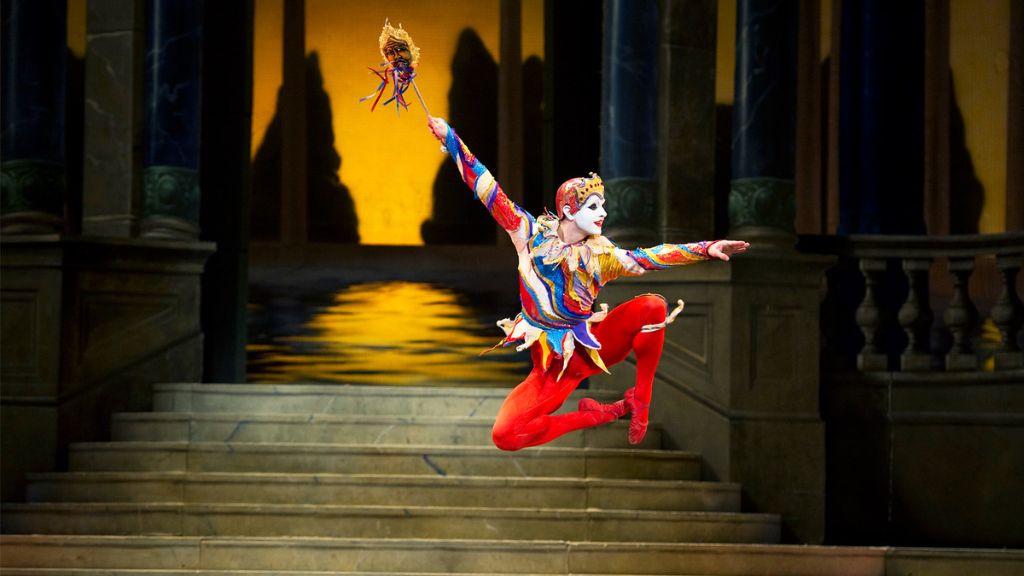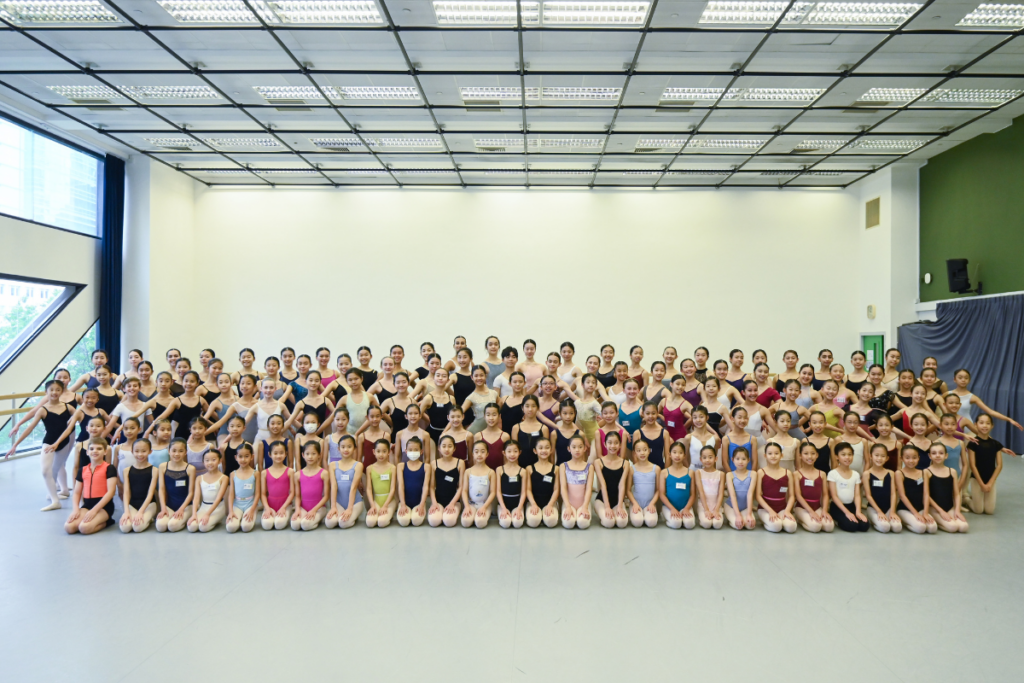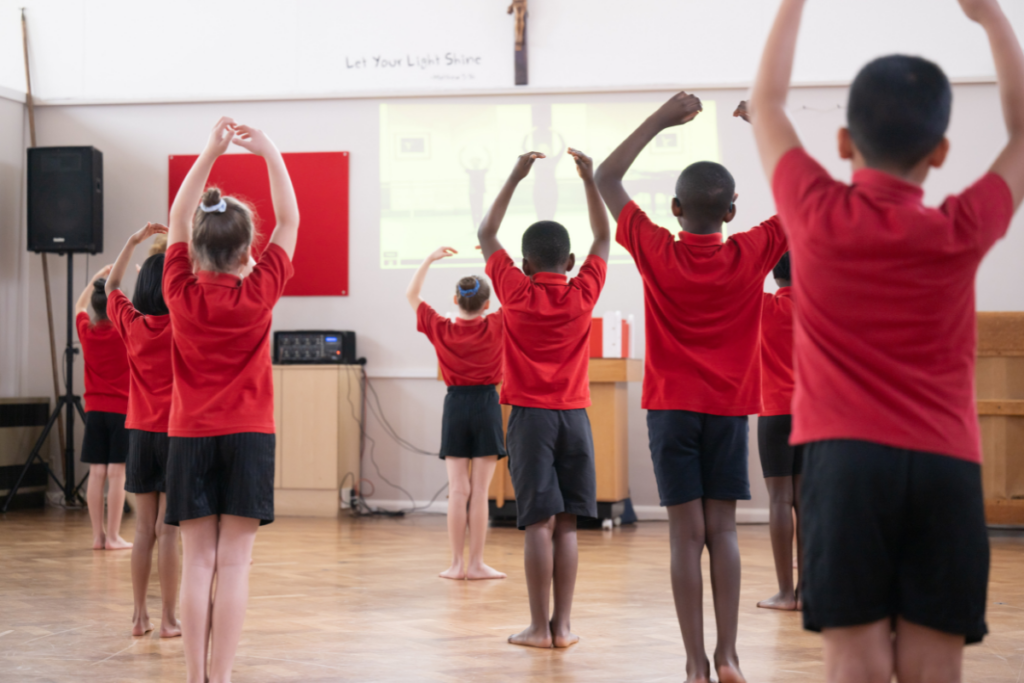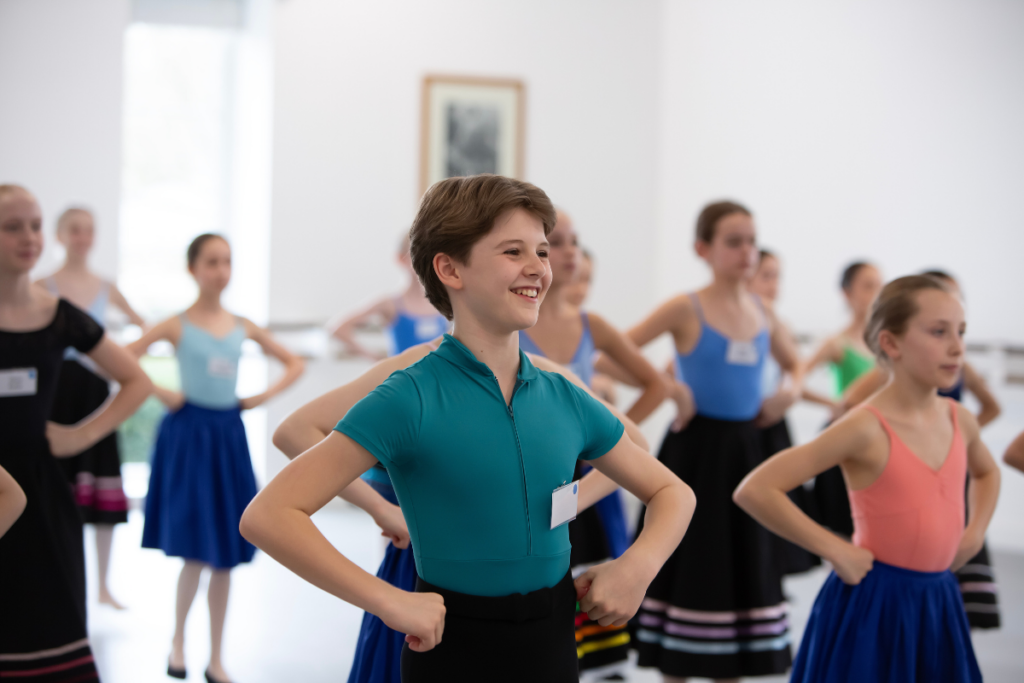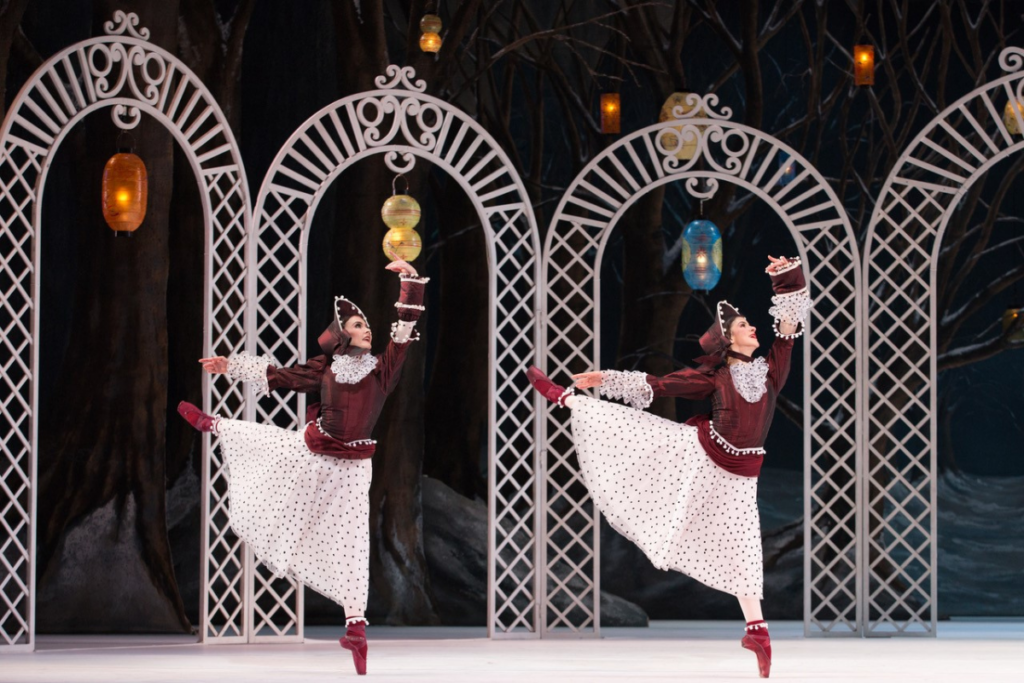Welcoming Paul Kay as Artistic Manager: Intensive Courses and Auditions (UK)
This month we welcome former Royal Ballet Soloist Paul Kay back to the School to take up the post of Artistic Manager: Intensive Courses and Auditions (UK). Paul was a Junior Associate and then full-time student at both White Lodge and Upper School, graduating into The Royal Ballet in 2003. He was promoted to First Artist in 2005 and Soloist in 2008, going on to enjoy an incredible 19-year career with the Company. Paul has also just completed The Royal Ballet School’s Diploma of Dance Teaching. He took the time to talk to us about how he feels about returning to the School and his career so far.
You’ve had a long association with The Royal Ballet School. Going back to the beginning, tell us how you first started your ballet training?
I first started my ballet training when I was around 8 years old, initially because it was something my older siblings did at the time. Being one of seven children I’m sure my parents felt it was the perfect after-school activity and an ideal way for us to burn off any restless energy! I am one of the younger siblings so I feel that being exposed to slightly more advanced dancers early on made me progress faster.
What was your early training like? Were there any teachers that particularly inspired you, and is there a piece of advice you were given that has stayed with you?
My very first dance teacher was a lady called Gaynor Walters. She ran a local dance school in Devon, where I grew up, and provided jazz, tap, character and ballet classes. When I first started classes with her I initially excelled in jazz, winning prizes at The Janet Cram Awards before I focused my training on ballet. She was a wonderful teacher, with an excellent eye for detail. She instilled a real sense of discipline and attention to detail within my ballet training; it’s thanks to her that I avoided many bad habits which can creep in during the early years of training and can be hard to ‘unlearn’. Her advice was that ‘you’re a work in progress’: work hard and enjoy the process rather than only being fixated on the end goal. This advice stayed with me throughout my ballet training and Royal Ballet career.
What are your memories of your time as an Associate student or your time at the School?
I was a JA at Bristol (it’s now moved to Bath) and would attend once a month. It was an incredible experience where I got to train with dancers from all over the southwest of England. It was this interaction with dancers from a broader area, not just my local town, which inspired me to work harder and learn from my peers who came from a range of training backgrounds. It was the same when I attended White Lodge: it opened my eyes to fellow dancers with huge potential from all over the world. This friendly competition lit a new fire and drove me to strive for excellence in my ballet training.
I loved my time at The Royal Ballet School; the training there is second to none and you can feel the pride and passion in everyone who teaches or studies at the School. It’s inspiring and infectious! It’s a truly unique school where you meet friends for life, in fact, I met my now-wife at my initial JA training. We subsequently attended The Royal Ballet School together and later both joined The Royal Ballet Company, and the rest is history… so, yes! The Associates and Royal Ballet School hold extremely special memories for me.
What would you say was the most important thing or things you took away from your training?
The Royal Ballet School provided me not only with excellent ballet technique, resilience and creative inspiration but most importantly a real passion for ballet and dance which is a lifelong attribute that I’m extremely grateful for. If we are to truly excel in something then we need to approach it with real passion.
What do you think the key changes are between when you were at the School and now?
I think the School has changed quite significantly since I was a student. With the advances in healthcare, education and teaching techniques I believe The Royal Ballet School has evolved and adapted, placing students at the centre of its focus while continuing to deliver world-class training. When I was at the School it was a very ‘traditional’ style of ballet training which was of that time. But, as the world changes so must ballet schools and I believe the School today are at the forefront of providing a holistic and inclusive learning environment for all their students, always in the pursuit of excellence.
What advice would you give to current students, bearing in mind the challenges you faced or the challenges young dancers face today?
Ballet companies today are expecting more and more of their dancers. They are demanding the highest levels of ballet technique as well as contemporary, stagecraft and even tap! So more than ever now young dancers need to be versatile. My advice to young dancers today would be to be adaptable and courageous! Dance is one of the most difficult and challenging professions but it is also one of the most rewarding.
What was your transition from School to Company like?
Very swift! I joined The Royal Ballet Company halfway through my final year at school in February 2003. One week I was at school still training and the next I was a full Company member. I had just finished a school tour of New York with my 3rd Year peers and after I landed back in the UK, Dame Monica Mason offered me a contract to start within a few days. It was a whirlwind and I had to learn extremely quickly.
There’s a whole different dynamic in a ballet company. You’re expected to learn a vast amount of choreography in a relatively short time and as a new company member, you’re often likely to replace injured or unwell dancers with very short notice. At school, you’re very much guided and looked after but with company life, the responsibility lies solely with you, so being independent and autonomous is essential.
Tell us about your career highlights – what have been your favourite memories of the Company, and some of your favourite roles or ballets to dance?
There are so many memorable moments over my 19-year career with the Royal Ballet Company. The Company has such an incredible variety of repertoire from the best of Ashton and MacMillan to the new creations by Christopher Wheeldon and Wayne McGregor. As a dancer, you’re spoilt for choice when it comes to roles. I have had a close association with Wayne McGregor over the years, being involved in the creative process of many of his ballets. It is so inspiring to collaborate with such a groundbreaking and talented choreographer; they are some of my favourite and special moments on stage.
Also, a very special moment on stage was when I proposed to my wife during the final moments of The Nutcracker! We were both playing lead roles (Hans Peter and Clara) and I managed to write the proposal on a note used in the final moments of the ballet. Both our families were watching the performance so this production holds very fond memories for us.
Why did you decide to complete the Diploma of Dance Teaching and how was the experience?
I have a real passion for passing on my knowledge and experience to the next generation of dancers. I was often teaching during the summer, at intensive courses and private coaching, but I realised that just because I had a successful career with the Company it didn’t automatically mean I had all the tools I needed to be the very best teacher. I knew The Royal Ballet School teaching course was one of the most well-respected and innovative teaching courses around, and the skills I have gained are invaluable and have enabled me to become a far more effective practitioner. In turn, my students are gaining a far superior learning experience and environment.
How does it feel to join the School and return to your roots?
I feel incredibly grateful to be returning to the School – it feels like I have come full circle and home! I had a truly magical time here and I’m thrilled to be joining the faculty. It’s a real privilege to nurture and guide the next generation of dancers on this very special career path.
What are you most looking forward to in this new role, and what are your hopes for the future of our Intensive Courses and auditions programme?
I am most looking forward to having the opportunity to make a positive impact on any student who comes into contact with the School. Whether that be during an Intensive Course, workshop or audition, my goal is that anyone who comes through the doors of The Royal Ballet School leaves feeling respected, included and ultimately inspired, however brief or long that interaction is. The School is a centre of excellence, not just in ballet but in everything we do. I relish the opportunity to help radiate that standard throughout its Intensive Courses and auditions process.
What can we expect from The Royal Ballet School Intensive Courses and auditions over the coming year and beyond?
All students can expect a truly world-class, holistic experience. The Royal Ballet School is constantly adapting and evolving to be right at the forefront of ballet training and students can expect to be taught and coached by a diverse faculty, each at the very top of their game.
What would you say to somebody nervous about applying for a course or an audition?
In one word, I would say be courageous! Being nervous is a part of a performer’s life but don’t let it stop you from following your dreams. Never be afraid to fail – it is a natural part of the learning process. After all, if we don’t try then we’ll never know. So trust yourself, take the leap of faith and follow your passions.

